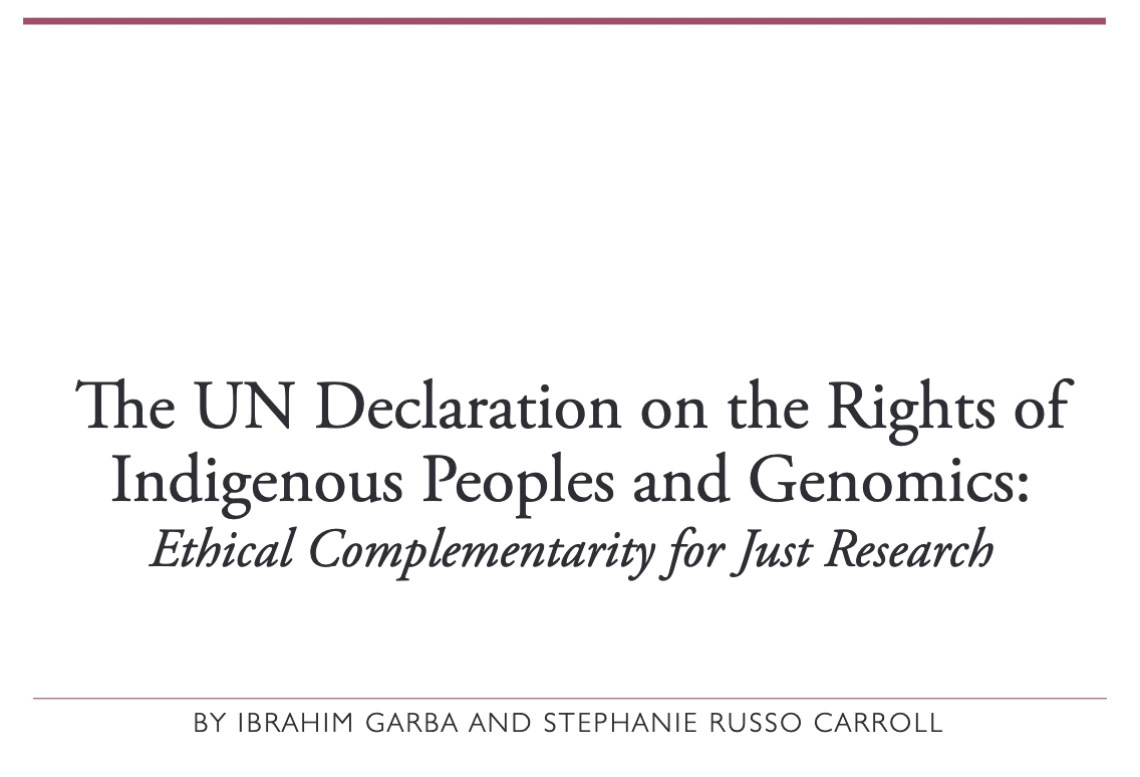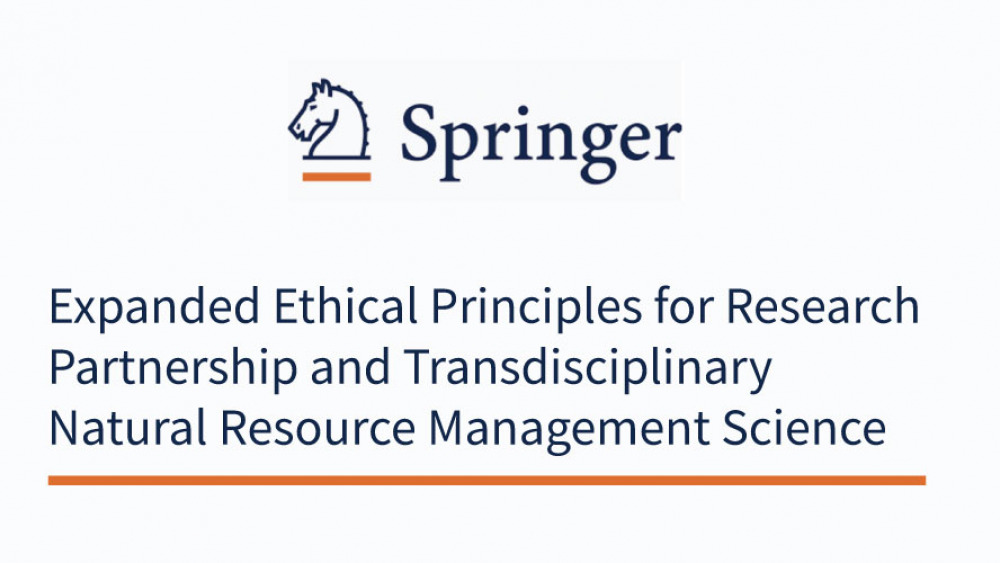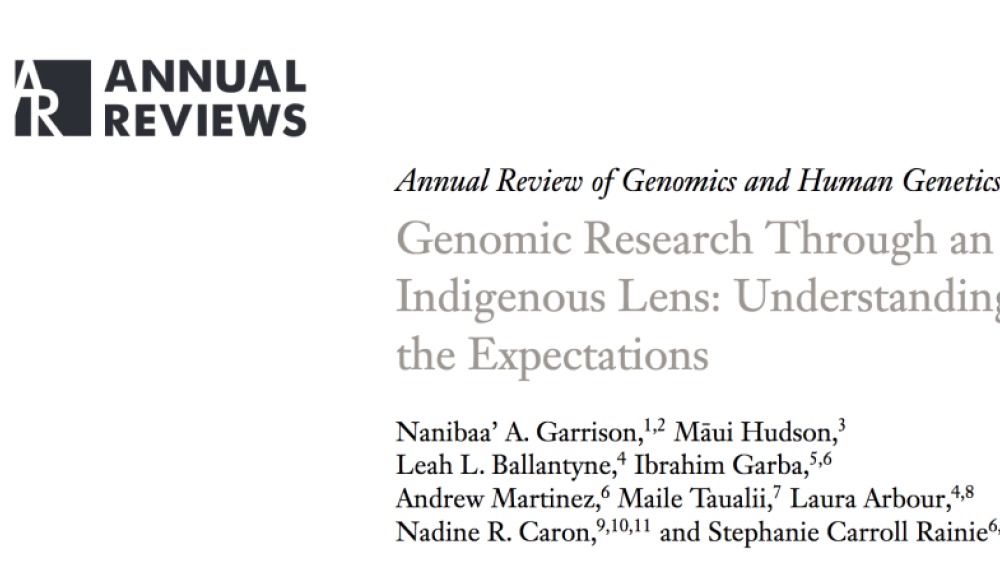Governance of biomedical research in the United States has been characterized by ethical individualism, a mode of reasoning that treats the individual person as the center of moral concern and analysis. However, genomics research raises ethics issues that uniquely affect certain genetically related communities as collectives, not merely as aggregates of individuals. This is especially true of identifiable populations—including Indigenous Peoples—that are often minoritized, socially marginalized, or geographically isolated. We propose an alternative, complementary framework based on the United Nations Declaration on the Rights of Indigenous Peoples (UNDRIP)(2007), which explicitly recognizes both individual and collective rights. We use the CARE Principles for Indigenous Data Governance as a case study to show how this UNDRIP-based framework can complement the individual-focused national standard for research oversight represented by the Belmont principles, thereby better protecting Indigenous Peoples’ rights and interests in genomic data.
Additional Information
and , “The UN Declaration on the Rights of Indigenous Peoples and Genomics: Ethical Complementarity for Just Research,” in “Envisioning a More Just Genomics,” ed. Josephine Johnston, Deanne Dunbar Dolan, Danielle M. Pacia, Sandra Soo-Jin Lee, and Mildred K. Cho, special report, Hastings Center Report 54, no. S2 (2024): S120–S125. DOI: 10.1002/hast.4937




